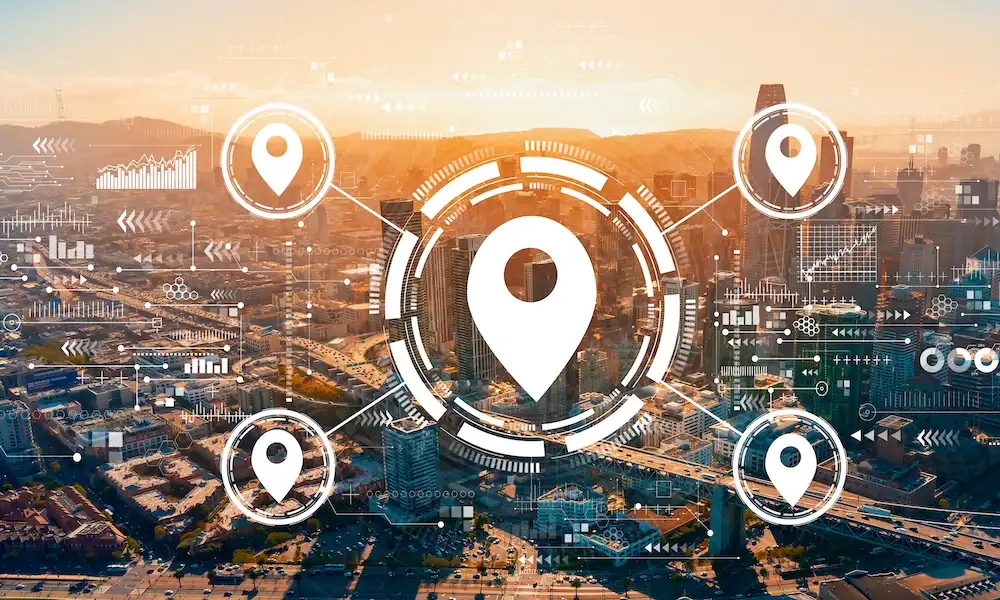Management
7 Key Considerations When Picking Your Business Location

The success of any organization heavily relies on its business location. For traditional businesses, this includes physical property, lease, staff, infrastructure, and supply chain.
Even for eCommerce businesses, location still holds significance despite not requiring a physical commercial property. Consumers will look up the location before they do their online shopping.
However, while online purchases are popular today, consumers often shop locally. 86% of consumers use the Internet to look up business location information.
Additionally, consumers can seamlessly find a store with Google Location services and use their precise Google location to QR code tech to navigate to the exact physical address of a business conveniently.
Getting the location right for your business is vital. See our seven recommendations for choosing the correct physical address.
1. The Cost of Doing Business in that Location
How friendly are the state and the city you want your business in? This is one of the first and most essential questions to ask as you look for a good company location. Just so you know, Washington, Georgia, and Minnesota are the top three rankers regarding the best states in the US to start a business.
What we mean by entrepreneurship-friendliness relates to how much it costs to run a business in a specific location. Remember that taxes, income, and sales vary significantly from one state to another. The same goes for regulatory requirements.
In terms of specific cities, consider the overhead costs of doing business there. How much does rent cost?
For instance, although experts consider Washington the best place to have a business, it also has the highest cost of office space, at $595 per square foot.
Check labor availability, government incentives, city regulations, and taxes.
2. Who Your Customers Are
Who are your target customers? Do they consist mainly of college students? Or is your business geared towards car owners and motorists?
Simply put, demographics are critical to securing a good location for business. After all, the customers will bring in the money you’ll use to pay for that location in the first place.
So, if your products/services are primarily for college students, setting up shop near such educational institutions makes sense. On the other hand, if it’s an auto repair/body shop, you should choose an area with a well-traveled street.
3. Foot vs. Vehicle Traffic
Again, this has something to do with your target audience. Foot traffic is essential for most businesses, but vehicle traffic is good enough for others.
Let’s use the college student and motorist examples again.
Not all students have cars, so most of them walk and commute. You won’t get enough traffic to drive sales if your business location is too far to walk to and from. In fact, no one may even find it!
On the other hand, if your shop has something to do with automobiles, it’s OK to set up a shop somewhere that needs some driving. At the same time, you need to make sure you provide your customers with parking space.
4. Ease of Access and Parking
Consumers nowadays are all about convenience. This should already tell you a lot about how crucial the location of your business is. If it’s too hassling to walk or drive, you can expect low traffic volumes for your shop or office.
There’s also the accessibility.
Will your target market find it easy to drive to? Will they have problems parking their cars? Is it designed for people with disabilities?
All these greatly influence the traffic flow to your business. If it’s not accessible for people who walk or drive, you may have to close up shop.
5. Your People
Your people – your employees- are as vital to you as your customers. As such, you should also factor them in when deciding the location. Whether it’s for a newly-opened business or one that you’ll move.
A too-far location can have a drastic impact on your employees. This may lead to them coming in to work late. It can affect their performance and overall productivity. And, if they find it too hassling or tiring, they may even quit to see a new workplace closer to their home.
Remember, looking for and hiring a new employee is more expensive than retaining one. Especially when these people play a huge role in running your business.
6. Your Current Business Location
If you’re an existing business owner and you’ve decided to move, you should also consider the distance from the current location of your business to the new place. Will moving require you to change states? Or will you only move to a neighboring town?
7. Making The Decision
Let’s not forget you – the business owner. Your preferences and needs are as necessary as the six factors mentioned above.
You don’t want to spend much of your business finances on just the office/shop space alone. Nor do you want to “save money” on a place with a cheap price but is too far to drive to. You also want to make sure you have your own parking space.
The Right Location Can Make or Break Your Business
At the end of the day, the final decision on which business location to choose depends on you. Additional considerations that can influence the location of your physical store could include:
Competition
Analyze the level of competition in the area. Assess whether there is room for your business to thrive without being overshadowed by existing competitors.
Infrastructure and Accessibility
Consider the location’s accessibility by road, public transportation, and other means. Evaluate how easy it is for customers, suppliers, and employees to reach the site. Ensure that the necessary infrastructure, such as utilities and internet connectivity, is available and reliable.
Future Growth and Development
Research the economic trends and growth prospects of the area. Choose a location that aligns with your long-term business goals. Consider the potential for future development or changes that may affect your business.
Risk Assessment
Identify potential risks associated with the location, such as natural disasters, political instability, or security concerns.






